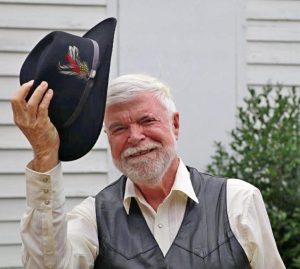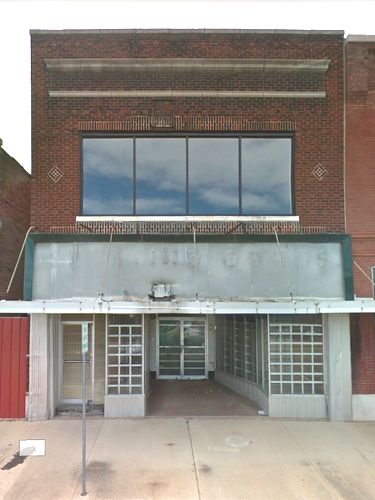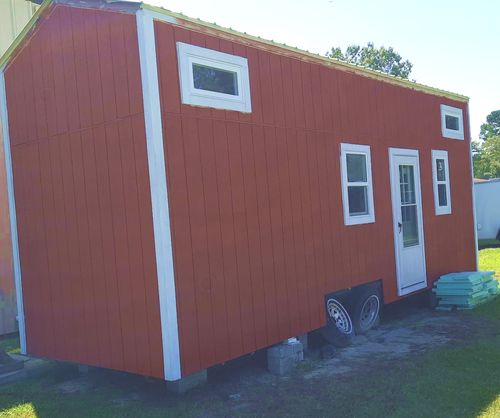10 Jan November 2023: When (not if) Problems Occur …

Number 116, November 2023
We are now on Instagram.
https://www.instagram.com/willissinclairhomes
Check out our projects!
Some of Henry’s fowl

Henry is raising chickens, turkeys and ducks. These are a few of his ducks.
From the Desk of Bill
November 3, 2023 — Kandy and I recently returned from our trip to Springfield, Missouri. It was a nice trip. We got to see seven of our eight children and 31 of our 38 grandchildren. I enjoy driving through southeastern Missouri since I spent some of my early years there (1951 to 1957).
We had a large “farm” in the boondocks. My Daddy traveled for a large electronics company (now gone), Philco, so we did not do much farming, but the 410 acre farm was a great place for my brother and me to explore. Our home was heated with a coal heater (a Warm Morning brand). We would stoke the heater at night and it would still be burning in the morning.
The house was tiny with four rooms: 2 bedrooms, a living room and a kitchen. It was probably about 600 square feet. We did have electricity – a 15 amp service with one outlet and one light in each of the four rooms. The power company had to special order a transformer for us when we got an electric clothes dryer. The “bathroom” was about 100 feet down the path to the left – not too convenient in the rain, snow or dark.
We went to a one room school with grades 1 through 8 for my first three years. A couple of those years, we rode to school with the teacher (the teacher changed every year) who drove by our house and one year, Bob and I walked the mile and a quarter unless the weather was bad and then Mom drove us.
When I was in the fourth grade, the number of students in our one room school had dropped to about 12 and the Upper Ten Mile school was closed. We were bused to the nearby town, Ellsinore (population about 300). There we had only two grades in a classroom.
The house and school are gone now. A few of the outbuildings on the farm are still standing (barely). The farm has been broken up into a number of parcels. Some of the old places we used to go to are now empty and in bad repair.

Bob and I used to love to go to a liquor store in the nearby “city” of Poplar Bluff (about 16,000 people) because in addition to liquor, they sold plastic models (cars, trucks, airplanes, military equipment and so forth).
Building models was a fun activity for us. We had plastic airplanes hanging all over our bedroom ceiling and cars on bookcases.
Today 303 South Main Street, the old liquor store, is an empty shell. It is sad to see the old building…
It is funny how it is enjoyable to think back on the farm. When we lived there, it did not seem especially fun although Bob and I usually enjoyed life. Sitting in the outhouse was not the most pleasant thing to do especially on cold or hot days. It had been built with green wood and when the wood dried and shrank, it left about ¾” gaps between each of the vertical 12” wide boards. When we had snow, you had to brush off the seat. If there was rain, the seat was usually wet. We kept the toilet paper under a big can. There was no light or heat. I did not have an inside bathroom or a telephone until I was in the 7th grade when we moved to the St. Louis area about 1957 or so.
Over the years, I have heard a lot of little one liners and most of them have a ring of truth to them and really helped me understand what goes on in our seemingly crazy world. I am writing about one of them this month.

Henry is Willis & Debby’s oldest son. He is a full-time employee and runs our carpentry crew. He has a variety of skills such as carpentry, welding and auto mechanics.
Henry enjoys both reading and listening to audio books and is a wealth of information on many topics. He is very ambitious and is pursuing several other interests around our work.
He is raising free-ranging ducks, turkeys and chickens. Some are for eggs and others for meat.
He is also building a tiny home he designed from the frame up.
The tiny home is nearly finished and he’s not sure if he’ll occupy it or sell it.
It has a kitchen and living area that includes a loft for sleeping. The two other rooms are a small office on one end and the bathroom on the other.

When (not if) Problems Occur…
Fix the problem, not the blame.
When I first heard this, it seemed like nonsense. Why would anyone not want to actually fix a problem, but rather find someone to blame for the “problem” (which might or might not exist)? As I pondered the question, I thought of several reasons this might happen and could think of a surprising number of examples.
Today, perhaps the most driving reason to fix blame is to force an agenda. Rahm Emanuel (Chief of Staff for the Obama administration) explained this reason when he was quoted saying something like “Never let a crisis go to waste.” Of course, the “crisis” can be real or imagined. It can be a person or an event. That is why when we have a hurricane, flood, drought, forest fire or other natural event, people trying to force an agenda will cry, “Climate Change.”
Is the climate changing? Obviously, yes, we call it weather. The Secretary General of the United States says the temperature of the earth is “boiling” and then follows with a list of things we “must” do to avert disaster. Really? Boiling? Since 1900, the average temperature (whatever that is) has risen less than 2 degrees F. For the record, NASA says the average temperature of Earth is 59 F. Boiling is 212 F.
In the case of “Climate Change” the crisis does not really exist, except in the media, but by blaming everything (floods, droughts, hurricanes, forest fires, etc.) on it, people can force agendas most don’t want: less freedom, higher fuel prices, higher food prices, higher taxes, electric vehicles and so forth.
Sometimes the problem really exists, but is not addressed. The New Mexico governor just used this tactic. As a result of several murders (the problem), she decided to disarm law abiding people (thus blaming them). Since people who violate the law, by definition, don’t obey the law, prohibiting guns affected only the law abiding people who, by definition, obey the law. She used a tragedy to force an agenda that had nothing to do with the problem. She fixed the blame, not the problem.
What about the 2020 election? There were a number of irregularities – more than I recall ever, yet instead of addressing them (fixing the problem), our “leaders” chose to fix the blame on the President, those protesting at the capital and anyone who dares to question the election results. By (illegally?) holding the protesters in jail with no charges for no real crime for years and charging the President with all sorts of bogus “crimes”, it sends a message to others who might be tempted to challenge the election or speak out. For some reason, when the 2016 election was challenged, it was no big deal. When our cities were burned (to the tune of hundreds of billions of dollars of damage) and people killed in the riots of 2020, it was “no big deal.”
Fixing the blame comes closer to home when you discover a problem with your automobile or home. If you point it out to the person responsible and he tells you the subcontractor or the mechanic did a bad job or blames anyone, he is fixing the blame. The fact is that if the responsible person knows his contractors or employees don’t do a good job, he should correct or dismiss them. The responsible person (contractor, service manager or whatever) is, well, responsible.
If you don’t fix the blame but decide to fix the problem, the first obvious step is to figure out what the problem is. Over the years, I have watched people just start trying things to fix a problem without understanding the problem. When I was helping factory repair people, we called this approach “shotgunning” – just keep blasting away until you might accidentally stumble on the solution.
Back in the day when I used to sell automotive parts (as a part time job when I was in the Army), I used to hear “mechanics” shotgun. If a person’s automobile did not start, they would blame the battery, generator, regulator or starter and replace one of them. If that did not work, they would tell the customer, look, the bad battery (or whatever) also took out the generator and then it was replaced. If both the battery and generator were not the problem to begin with, the customer would be told, the bad battery also took out the regulator, too. The mechanic would keep replacing parts until finally he happened to replace the bad one. (One of my bosses used to tell me, “Even a blind squirrel finds an acorn every now and then” — another one liner that is often true.)
Think about it, if you don’t know what the problem is, how can you know what the solution is? If the floor is wet in your bathroom, is there a leak? Did the toilet overflow? Did rain blow in through an open window? Did someone drop a glass of water? Is there a leak above the ceiling? Until you know what caused the problem, you cannot fix it. Certainly, you can blame “those kids” or the “lousy builder” or something like that, but guess what: the problem still exists.
I remember being called to a person’s guest house. They were having a real mold and mildew problem. Someone had set up a dehumidifier on the bathroom counter to try to control the humidity. That helped a bit, but the problem was not solved. We spent some time there trying to understand the problem. Clearly, the outside hot humid air was infiltrating the interior space. As the interior space was cooled, the moist air condensed on everything leading to mold and mildew. It turns out, when the painters initially painted the house, they removed the weather stripping from the windows so they did not get paint on them. Willis discovered they had not replaced (for whatever reason) the weather stripping and the moist outside air was infiltrating the house around the windows. We installed the weather stripping and the problem ceased to exist.
Whenever we face a problem, we look for the “smoking gun” – the actual problem — and don’t just shotgun. That means, of course, thinking about the possible problem areas and investigating them. If you do not understand the problem, you cannot correct it unless you are very lucky. The “guess and miss” system does not work well and can be very expensive. Sometimes, it takes a little longer than just blasting away, but isolating the problem is the key to correcting it.
If you need help with a problem, call or text us (843 846 2500). No cost or obligation to you, of course. We can find it and fix problems.





No Comments